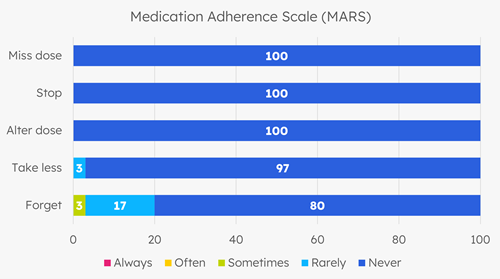Case Study: Empowering people living with acute coronary syndrome taking oral anti-platelet medication

Background
The Challenge
-
Acute Coronary Syndrome (ACS) is a group of life-threatening heart conditions, including heart attack.
-
ACS requires urgent treatment and is associated with a high risk of further cardiac events if not managed properly.
-
Although standard care after a heart attack includes one year of oral anti‑platelet medication, many discontinue the treatment after initiation, despite potential consequences of heart attack and death.
Our Behaviour Change Approach
-
A research and evidence-based approach shaped the solution design and uncovered the modifiable drivers of nonadherence.
-
This research included a literature review, as well as qualitative and quantitative research with patients and cardiac physicians, and cardiac nurse specialist focus groups.
-
A joint working initiative was developed in conjunction with the UK's National Health Service (NHS) to shape the initiative.
The Solution
OneHeart, a multichannel support programme, was designed to modify the way patients think about their disease and treatment through psychoeducation and interactive cognitive behavioural therapy challenges.
OneHeart included:
-
a comprehensive hospital discharge pack
-
personalised nurse coaching calls
-
a magazine series
-
SMS and email interventions
-
a personalised web portal with tailored digital content
The Impact
-
93% of OneHeart programme patients remained persistent at 13–24 weeks post-enrolment vs 82% at 3 months for non-programme ACS patients (IMS data, 2007).

-
No patients missed, stopped, or altered doses of their oral anti-platelet medication.

-
The OneHeart programme also positively impacted lifestyle changes: 68% reported increased physical activity, 78% had changed their diet and 100% had quit smoking.
